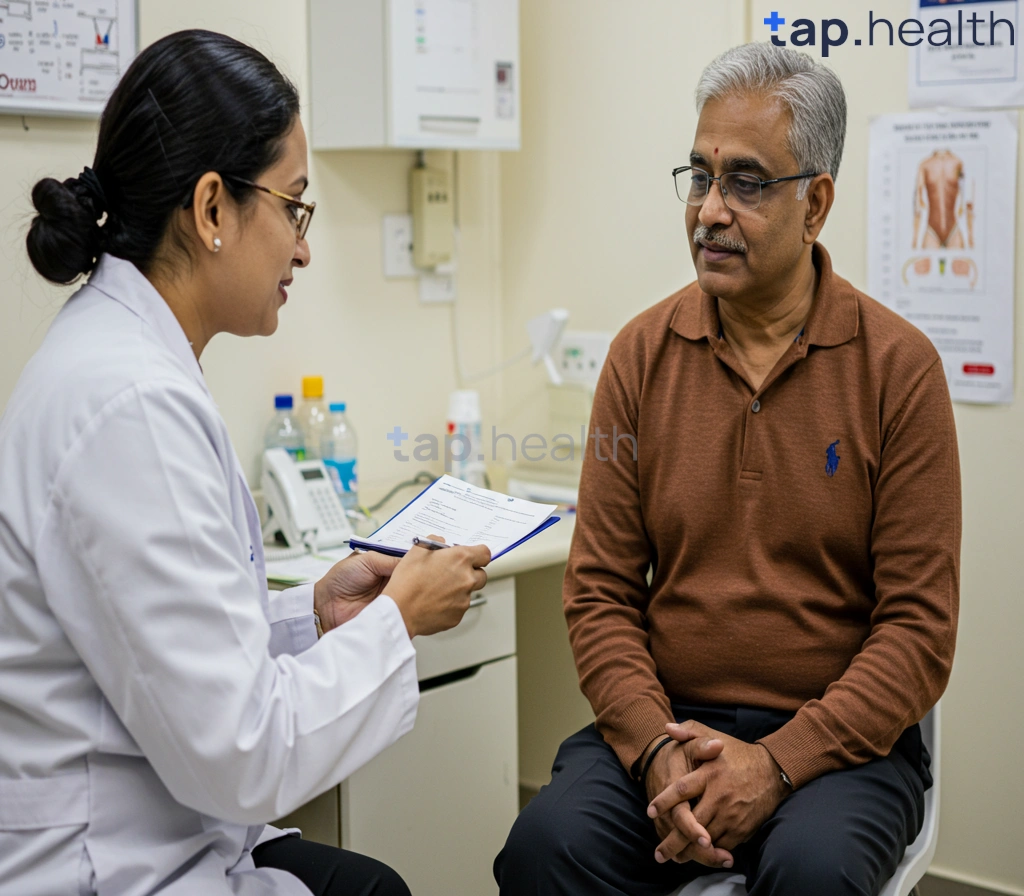Table of Contents
- Understanding Hormonal Imbalance and Gut Health in Diabetes
- How Gut Microbiome Changes Affect Blood Sugar Regulation
- The Gut-Hormone Axis: Uncovering Diabetes Risk Factors
- Dietary Strategies to Balance Hormones & Microbiome for Diabetes Management
- Your Microbiome and Diabetes: A Personalized Guide to Gut Health
- Frequently Asked Questions
- References
Ever wonder why managing your blood sugar feels like navigating a minefield some days, while other days it seems relatively smooth sailing? The answer might be more complex than you think, going far beyond just diet and exercise. This blog post dives into the fascinating connection between Hormonal Shifts & the Microbiome: A Diabetes Connection, exploring how fluctuations in hormones and the intricate balance of your gut bacteria can significantly impact your blood glucose levels. We’ll uncover how understanding this relationship can empower you to take a more proactive and personalized approach to diabetes management. Get ready to discover a new perspective on your health!
Understanding Hormonal Imbalance and Gut Health in Diabetes
Diabetes, a growing concern globally, particularly impacts the 20-64 age group, representing 61% of those affected according to the International Diabetes Federation’s Diabetes Atlas. In India and other tropical countries, this demographic is especially vulnerable due to lifestyle factors and genetic predispositions. This highlights the crucial link between hormonal shifts, gut microbiome health, and the management of diabetes.
The Gut-Hormone Axis in Diabetes
Maintaining a balanced gut microbiome is essential for overall health, including effective blood sugar regulation. Hormonal imbalances, often linked to insulin resistance, can disrupt this delicate ecosystem. For instance, elevated cortisol levels (stress hormone) can negatively affect gut diversity, potentially leading to increased inflammation and impaired glucose metabolism. Similarly, imbalances in sex hormones can influence insulin sensitivity. Understanding this complex interplay is critical for effective diabetes management. For more information on how stress hormones specifically impact diabetes, see our article: How Stress Hormones Affect Diabetes.
Regional Considerations and Practical Tips
In India and tropical regions, dietary habits often play a significant role. High consumption of processed foods, refined sugars, and unhealthy fats can disrupt the gut microbiome and exacerbate hormonal imbalances, increasing diabetes risk. Prioritizing a diet rich in fiber, probiotics, and prebiotics, common in traditional Indian cuisine like lentils and yogurt, can significantly improve gut health and support hormonal balance. Learn more about leveraging prebiotics and probiotics for better gut health and diabetes management in our article: Enhance Gut Health and Manage Diabetes with Prebiotics and Probiotics. Regular exercise and stress-management techniques like yoga and meditation are also crucial for regulating hormones and maintaining a healthy microbiome. Consulting with a healthcare professional or a registered dietitian is recommended for personalized advice tailored to individual needs and regional dietary contexts. Regular monitoring of blood sugar levels is also imperative for effective diabetes management.
How Gut Microbiome Changes Affect Blood Sugar Regulation
The Intricate Link Between Gut Health and Diabetes
Did you know that daily consumption of sugary beverages raises your diabetes risk by a staggering 26%? This startling statistic highlights the critical connection between our diet and the development of diabetes, a disease increasingly prevalent in Indian and tropical countries. A significant factor often overlooked is the role of the gut microbiome – the trillions of bacteria residing in our digestive system. These microbes play a crucial role in regulating blood sugar levels. An imbalance, or dysbiosis, in this delicate ecosystem can significantly impact our body’s ability to process glucose effectively, increasing the risk of type 2 diabetes.
Understanding the Microbiome’s Influence on Blood Sugar
The gut microbiome influences blood sugar regulation through various pathways. Specific bacteria produce short-chain fatty acids (SCFAs), which have shown to improve insulin sensitivity and glucose metabolism. Conversely, an overabundance of certain harmful bacteria can lead to inflammation, impairing insulin function and contributing to insulin resistance. This is particularly relevant in regions like India, where dietary habits often include high levels of processed foods and sugary drinks, further disrupting the microbiome’s balance and increasing diabetes vulnerability. Tropical climates also present unique challenges, with certain dietary patterns and environmental factors impacting gut health. Maintaining healthy Blood Sugar Levels is crucial for overall well-being.
Practical Steps for a Healthier Microbiome in Tropical Climates
Maintaining a healthy gut microbiome is vital for blood sugar control. Incorporating foods rich in prebiotics and probiotics, like yogurt, kimchi, and various fruits and vegetables commonly found in tropical regions, can help nurture beneficial bacteria. Limiting the intake of sugary drinks and processed foods, as highlighted by research showing a 26% increased diabetes risk, is equally crucial. Understanding How Nutrition Impacts Gut Health and the Microbiome is key to making informed dietary choices. Consulting a healthcare professional or a registered dietitian for personalized advice tailored to your specific needs and dietary preferences within your region is strongly recommended. Prioritizing gut health is a significant step towards preventing and managing diabetes, especially in the context of the unique challenges faced in Indian and tropical countries.
The Gut-Hormone Axis: Uncovering Diabetes Risk Factors
The global economic burden of diabetes is staggering, reaching $760 billion annually. Understanding its complex etiology is crucial, particularly in regions like India and other tropical countries where diabetes prevalence is high. A key area of focus is the intricate interplay between the gut microbiome and hormonal balance – the gut-hormone axis. This axis significantly influences insulin sensitivity and glucose metabolism, factors directly linked to diabetes risk.
The Microbiome’s Role in Diabetes
Imbalances in the gut microbiome, often characterized by a decrease in beneficial bacteria and an increase in harmful ones (dysbiosis), can disrupt the gut-hormone axis. This dysbiosis can lead to increased inflammation, impaired insulin signaling, and ultimately, increased risk of developing type 2 diabetes. Specific bacterial species are implicated in this process, highlighting the need for more research to identify personalized approaches for prevention and management. Dietary factors, common in many Indian and tropical diets, play a significant role in shaping the gut microbiome composition. To learn more about the connection between diet and gut health, read our article on What’s the Connection Between Gut Health and Your Diet?
Hormonal Imbalances and Diabetes Risk
Hormones like insulin, glucagon, and ghrelin are intricately linked to blood sugar regulation. Dysfunction in their production or signaling, often influenced by the gut microbiome, contributes to diabetes development. For instance, an altered gut microbiome can affect the production of incretins, hormones that stimulate insulin release. In tropical climates, factors like dietary habits and infections can further exacerbate these hormonal imbalances, increasing vulnerability to diabetes. The relationship between diabetes and obesity is also crucial to consider; see our article on Understanding the Link Between Diabetes and Obesity for more information.
Practical Steps for Diabetes Prevention in India and Tropical Regions
Considering the significant impact of diet on gut health, focusing on a diet rich in fiber, fruits, vegetables, and fermented foods is crucial. This promotes a healthy microbiome and better hormonal balance. Regular physical activity and stress management are also vital components of diabetes prevention, particularly in high-risk populations in India and other tropical countries. Consult with healthcare professionals to create personalized strategies based on individual needs and regional dietary patterns.
Dietary Strategies to Balance Hormones & Microbiome for Diabetes Management
Managing diabetes in Indian and tropical countries often requires a nuanced approach, considering both hormonal fluctuations and the gut microbiome’s crucial role in blood sugar regulation. Dietary choices play a pivotal role in this delicate balance. Understanding how food impacts your hormones and gut bacteria is key to effective diabetes management.
Harnessing the Power of Fiber
High-fiber diets are essential. Fiber, abundant in lentils, beans, and whole grains – staples in many Indian and tropical cuisines – promotes a healthy gut microbiome. This, in turn, improves insulin sensitivity, helping regulate blood sugar levels. Aim for a balanced intake of various fiber sources throughout the day.
Managing Carbohydrate Intake
While carbohydrates are a necessary energy source, portion control is critical. General guidelines suggest around 45–60 grams of carbs per meal for most individuals with diabetes, but this varies significantly depending on individual needs, activity levels, and medication. Consulting a doctor or registered dietitian is vital to determine the appropriate carbohydrate intake for your specific situation. Focus on complex carbohydrates like brown rice, millets, and oats, which are digested more slowly, preventing blood sugar spikes. For more detailed guidance on carbohydrate portions, you might find Diet Chart for Diabetic Patients to Control Diabetes helpful.
The Importance of Gut-Friendly Foods
Incorporating foods rich in probiotics and prebiotics is crucial for nurturing a thriving gut microbiome. Fermented foods like yogurt (especially those containing live cultures), kimchi, and idli are excellent choices. These foods contain beneficial bacteria that improve gut health and may positively impact insulin sensitivity. Prebiotics, found in foods like onions, garlic, and bananas, feed the good bacteria in your gut, further supporting a healthy microbiome.
Regional Considerations
Many traditional Indian and tropical diets already incorporate many of these beneficial foods. However, be mindful of added sugars and unhealthy fats often found in processed foods and street foods common in these regions. Prioritizing whole, unprocessed foods and minimizing refined sugars and saturated fats are critical for successful diabetes management. By focusing on these dietary strategies, individuals in Indian and tropical countries can better manage their diabetes and improve their overall health. Consult a healthcare professional for personalized dietary advice. If weight loss is a goal alongside diabetes management, consider exploring How to Lose Weight with Diabetes Diet Plan for additional strategies.
Your Microbiome and Diabetes: A Personalized Guide to Gut Health
The global burden of diabetes is staggering. According to the International Diabetes Federation, 536.6 million people (aged 20-79) lived with diabetes in 2021, a number projected to rise to 783.7 million by 2045. This alarming increase highlights the urgent need for effective prevention and management strategies, particularly in regions like India and other tropical countries where diabetes prevalence is high. Understanding the intricate connection between hormonal shifts, the gut microbiome, and diabetes is crucial.
The Gut-Hormone Axis and Diabetes
Your gut microbiome, a complex ecosystem of trillions of bacteria, fungi, and viruses, plays a significant role in regulating blood sugar levels. Imbalances in this ecosystem, often termed dysbiosis, can disrupt the gut-hormone axis, impacting insulin sensitivity and glucose metabolism. This is especially relevant in tropical climates where dietary habits and lifestyle factors can heavily influence gut health. For example, diets high in processed foods and low in fiber are common in many regions and are linked to gut dysbiosis.
Improving Gut Health for Diabetes Management
Fortunately, you can take proactive steps to nurture a healthy microbiome. Incorporating fiber-rich foods like fruits, vegetables, and legumes, common and readily available in many Indian and tropical diets, is essential. Fermented foods such as yogurt and kimchi, also popular in many of these regions, can further enhance gut microbial diversity. Reducing refined sugar intake and prioritizing regular physical activity also contributes to improved glucose control and a healthier gut. Consulting a healthcare professional for personalized dietary and lifestyle advice is crucial, especially given the diverse range of factors influencing diabetes risk in different tropical climates. For more information on creating a personalized plan, see our guide on Personalized Diabetes Control: Your Key to Better Health.
Personalized Approach for Tropical Regions
Given the diverse dietary habits and environmental factors across India and tropical countries, a personalized approach to gut health management is vital. This involves considering regional dietary staples, cultural practices, and environmental influences when tailoring recommendations. By focusing on improving gut health through simple yet effective lifestyle changes, individuals in these regions can significantly improve their diabetes management and overall well-being. The challenges of managing diabetes can change as we age, and understanding these changes is important. Learn more about Managing Diabetes as You Age: Challenges and Solutions.
Frequently Asked Questions on Hormonal Shifts & the Microbiome: A Diabetes Connection
Q1. How does the gut microbiome affect my risk of developing diabetes?
An imbalance in your gut bacteria (dysbiosis) can disrupt glucose metabolism and insulin sensitivity, increasing your risk of developing diabetes. A healthy microbiome supports better blood sugar regulation.
Q2. What lifestyle changes can I make to improve my gut health and reduce my diabetes risk?
Focus on a diet rich in fiber (fruits, vegetables, whole grains), include probiotics (yogurt, kimchi), and prebiotics (onions, garlic). Regular exercise and stress management are also crucial. Limit processed foods and sugary drinks.
Q3. Why are people in tropical regions and India at higher risk of diabetes?
A combination of lifestyle factors (diet, activity levels) and genetic predispositions makes individuals in these regions more susceptible. These factors can influence gut microbiome composition and hormonal balance.
Q4. What role do hormones play in diabetes and gut health?
Hormonal imbalances, particularly elevated cortisol (stress hormone), can negatively impact gut diversity and increase inflammation, worsening diabetes risk. Maintaining hormonal balance is important for overall health.
Q5. How can I get personalized advice for managing my diabetes risk?
Consult a healthcare professional for personalized dietary and lifestyle recommendations. They can consider your individual needs, regional dietary context, and any pre-existing health conditions to create an effective management plan.
References
- A Practical Guide to Integrated Type 2 Diabetes Care: https://www.hse.ie/eng/services/list/2/primarycare/east-coast-diabetes-service/management-of-type-2-diabetes/diabetes-and-pregnancy/icgp-guide-to-integrated-type-2.pdf
- Diabetes Mellitus: Understanding the Disease, Its Diagnosis, and Management Strategies in Present Scenario: https://www.ajol.info/index.php/ajbr/article/view/283152/266731




